The Life-Course Perspective Argues That
The Life-Course Perspective Argues That - Argues that members of large cohorts need to compete for atten tion in families, schools, and job opportunities whereas a smaller generation generally has less competition and better. And human agency in making choices. Advance the understanding of multiple exposures and their interactions. Web life course perspective an approach to human behavior that recognizes the influence `of age but also acknowledges the influences of historical time and culture. Web the life course perspective is emerging as a powerful organizing framework for the study of health, illness, and mortality. Web life course theory, or life course perspective, is an approach to studying and understanding the ways in which people live and the various factors that affect psychological, physical, and social. B.) the factors that influence people's entrance into criminal activity and the factors that induce them to give up criminal activity are the same. Which of the following statements is not true about the uniform crime reports (ucr)? Produced by rob szypko , sydney harper and alex stern. The interplay of human lives and historical times; Web recently, the life course perspective has been identified as a “useful organising research paradigm” for child welfare research given its “emphasis on dynamic change, longitudinal effects, physical and psychosocial development, and social context” ( white & wu, 2014: Which looks at how chronological age, relationships, common shape people's lives from birth to death. Produced by rob szypko , sydney. Web the life course perspective is emerging as a powerful organizing framework for the study of health, illness, and mortality. B) the factors that influence people's entrance into criminal activity and the factors that induce them to give up criminal activity are the same. It locates individual and family development in. Web life course theory, or life course perspective, is. In doing so, it uniquely brings together many conceptual themes that are individually found in a variety of developmental and demographic perspectives ( elder, johnson, & crosnoe, 2003 ). Web life course research priorities. Interplay of human lives and historical time, timing of lives, linked or interdependent lives, human agency in making choices, diversity in life course trajectories, and developmental. Web life course theory, or life course perspective, is an approach to studying and understanding the ways in which people live and the various factors that affect psychological, physical, and social. Interplay of human lives and historical time, timing of lives, linked or interdependent lives, human agency in making choices, diversity in life course trajectories, and developmental risk and protection.. Original music by marion lozano and dan. Web six themes of the life course perspective. It views one's life as a socially sequenced timeline and recognizes the importance of factors such as. Web the life course perspective is most frequently used in combination with other, more specific theories (e.g., stress process theory). We also seek to consider the ways in. Web life course theory (lct) looks at how chronological age, relationships, common life transitions, life events, social change, and human agency shape people’s lives from birth to death. The interplay of human lives and historical times; And human agency in making choices. The life course perspective posits that cumulative and interactive exposures over the life span—including in utero exposures—influence. It. Web life course research priorities. Web six themes of the life course perspective. Argues that members of large cohorts need to compete for atten tion in families, schools, and job opportunities whereas a smaller generation generally has less competition and better. The life course approach, also known as the life course perspective or life course theory, refers to an approach. Web life course theory (lct) looks at how chronological age, relationships, common life transitions, life events, social change, and human agency shape people’s lives from birth to death. Web recently, the life course perspective has been identified as a “useful organising research paradigm” for child welfare research given its “emphasis on dynamic change, longitudinal effects, physical and psychosocial development, and. A) the decrease in crime rates after adolescence implies that the number of crimes committed by all individual offenders declines. Web life course research priorities. Web the life course perspective is emerging as a powerful organizing framework for the study of health, illness, and mortality. Argues that members of large cohorts need to compete for atten tion in families, schools,. Web in this entry, we provide brief overview of the “life course approach” to the study of human development. Web at its core, a life course perspective insists that development is lifelong and that no life stage can be understood in isolation from others. A.) the decrease in crime rates after adolescence implies that the number of crimes committed by. Web the life course perspective can best be conceptualized as viewing life events in the context of life stages, turning points, and pathways, all of which are embedded in social institutions (elder, 1985). Web the life course perspective is emerging as a powerful organizing framework for the study of health, illness, and mortality. Web recently, the life course perspective has been identified as a “useful organising research paradigm” for child welfare research given its “emphasis on dynamic change, longitudinal effects, physical and psychosocial development, and social context” (white & wu, 2014: Original music by marion lozano and dan. Web life course research priorities. Web life course theory differs from the theories that take a traditional approach, and concentrates on why people commit crimes.however, this theory concentrates on why people desist from crimes and does not explain why people engage in criminal behavior. Lcp brings time, context and process into the study of human lives and development (elder and giele 2009 ). In doing so, it uniquely brings together many conceptual themes that are individually found in a variety of developmental and demographic perspectives ( elder, johnson, & crosnoe, 2003 ). Advance the understanding of multiple exposures and their interactions. Web this chapter provides an overview of the key elements of a life course approach, explains some of the key differences across disciplines and the strengths and weaknesses of a life course approach for understanding the role of families in the transmission of (dis)advantage. It locates individual and family development in. We also seek to consider the ways in which principles inherent in this approach complement and contrast dominant perspectives on personality development within our field. Web life course perspective an approach to human behavior that recognizes the influence `of age but also acknowledges the influences of historical time and culture. Which looks at how chronological age, relationships, common shape people's lives from birth to death. B.) the factors that influence people's entrance into criminal activity and the factors that induce them to give up criminal activity are the same. Interplay of human lives and historical time, timing of lives, linked or interdependent lives, human agency in making choices, diversity in life course trajectories, and developmental risk and protection.
The Life Course Health Development Model Life Course Research Network
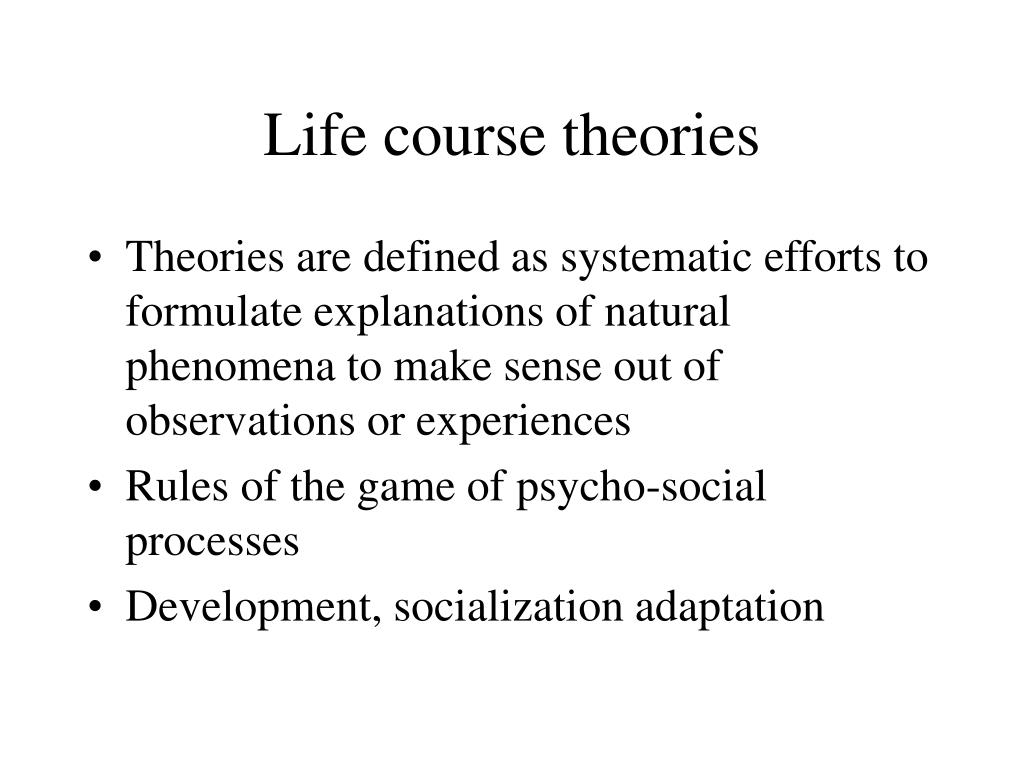
PPT Life course theories PowerPoint Presentation, free download ID
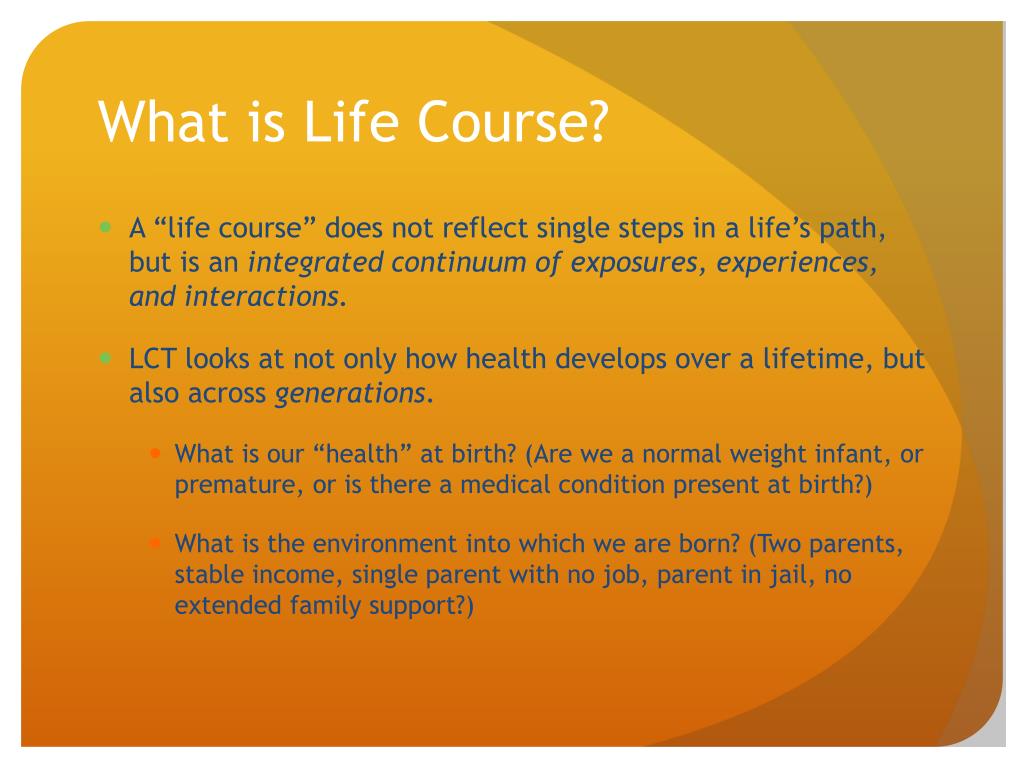
PPT Life Course Theory PowerPoint Presentation, free download ID
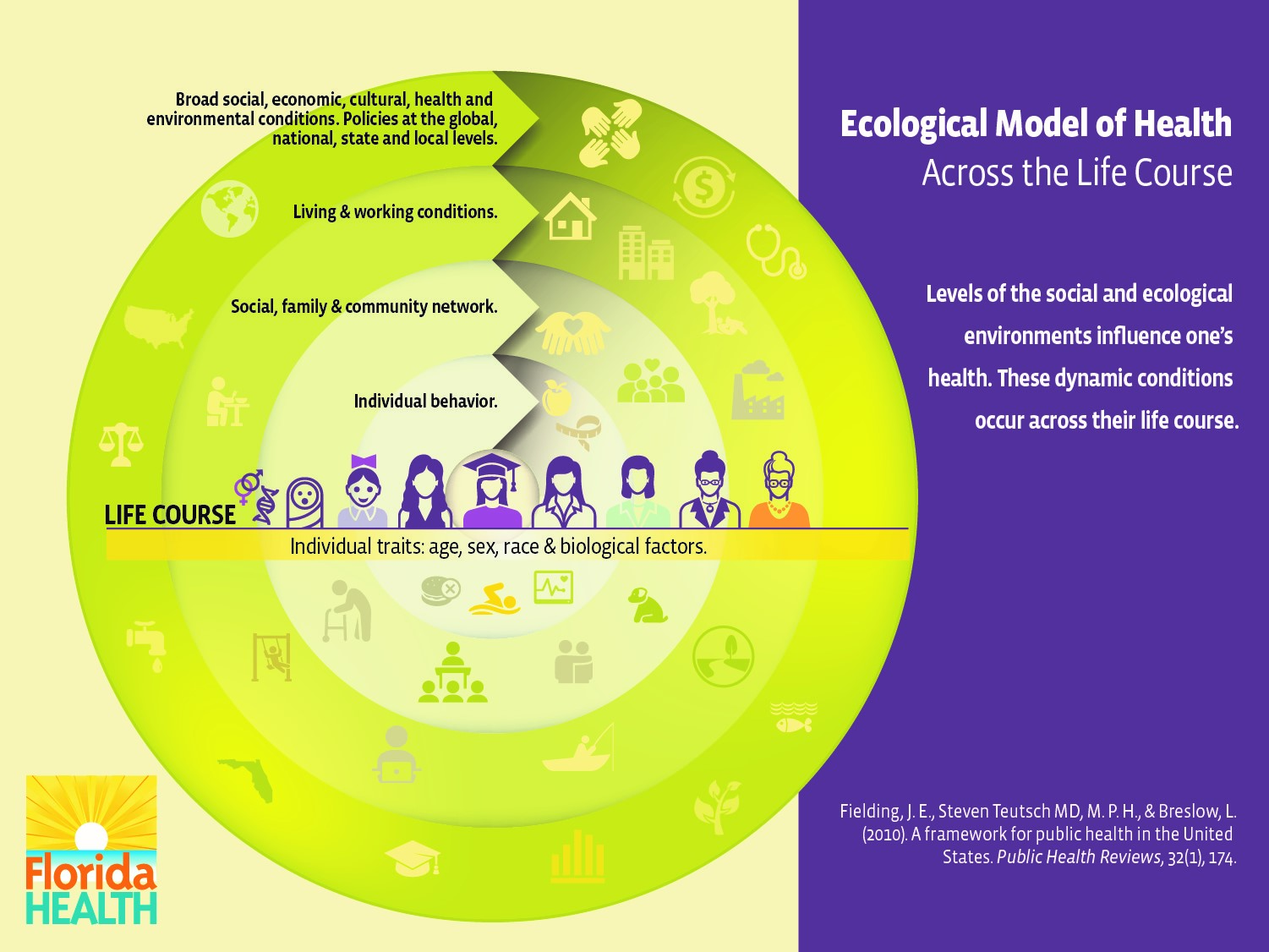
The Life Course Theory Florida Department of Health

Life Course Perspective On Family Stress

MSW 560 Lecture on Life Course Perspective YouTube
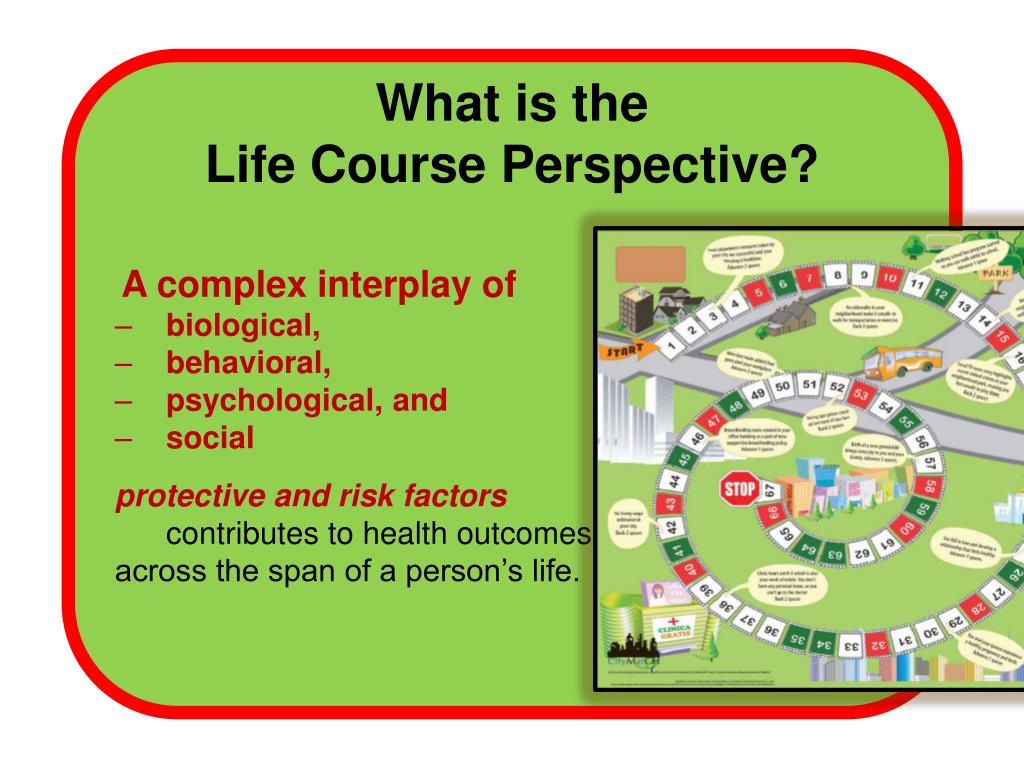
PPT PowerPoint Template Life Course Perspective PowerPoint
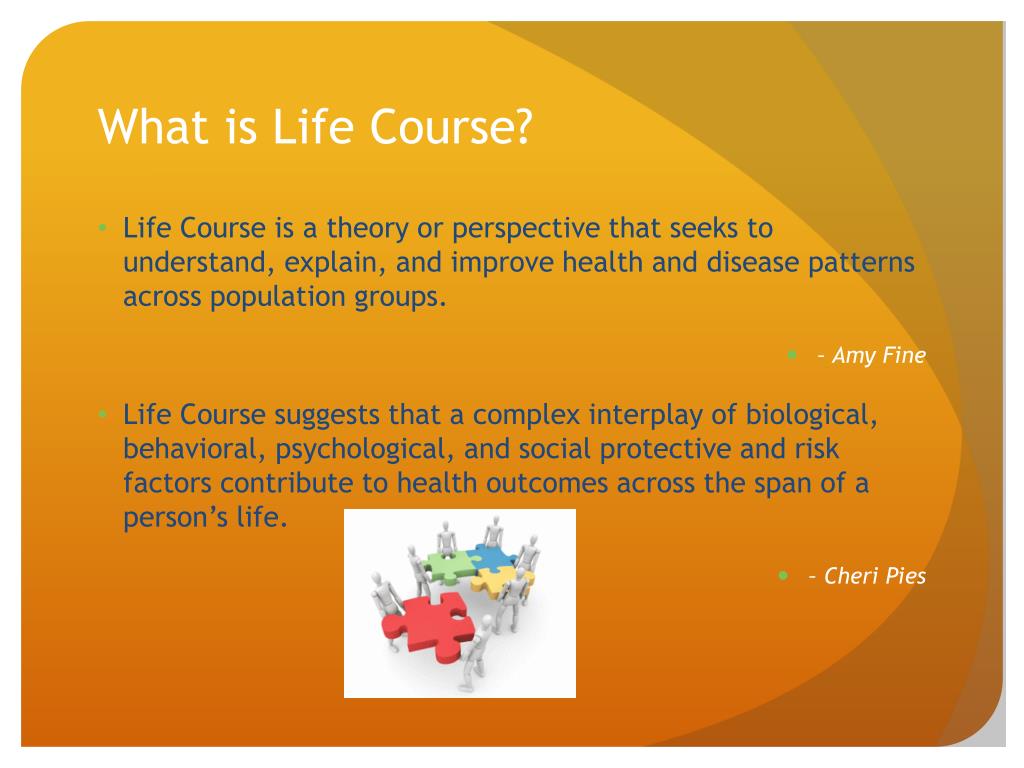
PPT Life Course Theory PowerPoint Presentation, free download ID

PPT Educating the MCH Workforce on the Life Course Perspective
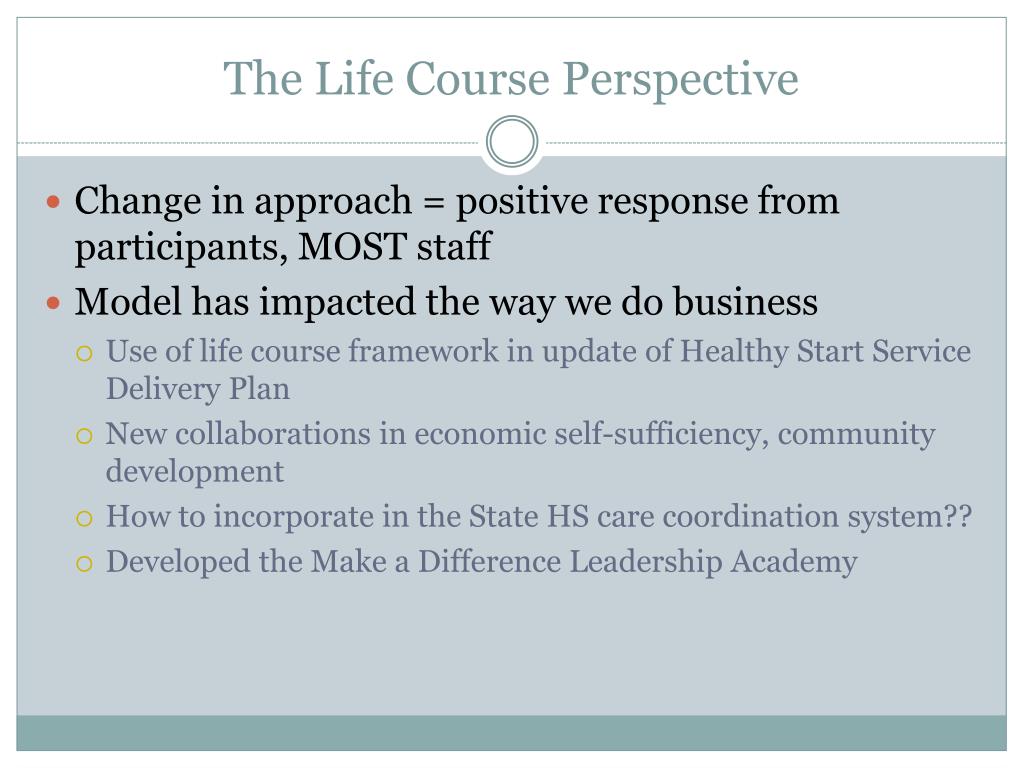
PPT The Life Course Approach PowerPoint Presentation, free download
Web Updated On October 27, 2019 The Life Course Perspective Is A Sociological Way Of Defining The Process Of Life Through The Context Of A Culturally Defined Sequence Of Age Categories That People Are Normally Expected To Pass Through As They Progress From Birth To Death.
Web Life Course Theory (Lct) Looks At How Chronological Age, Relationships, Common Life Transitions, Life Events, Social Change, And Human Agency Shape People’s Lives From Birth To Death.
Web The Life Course Perspective Is Most Frequently Used In Combination With Other, More Specific Theories (E.g., Stress Process Theory).
Which Of The Following Statements Is Not True About The Uniform Crime Reports (Ucr)?
Related Post: